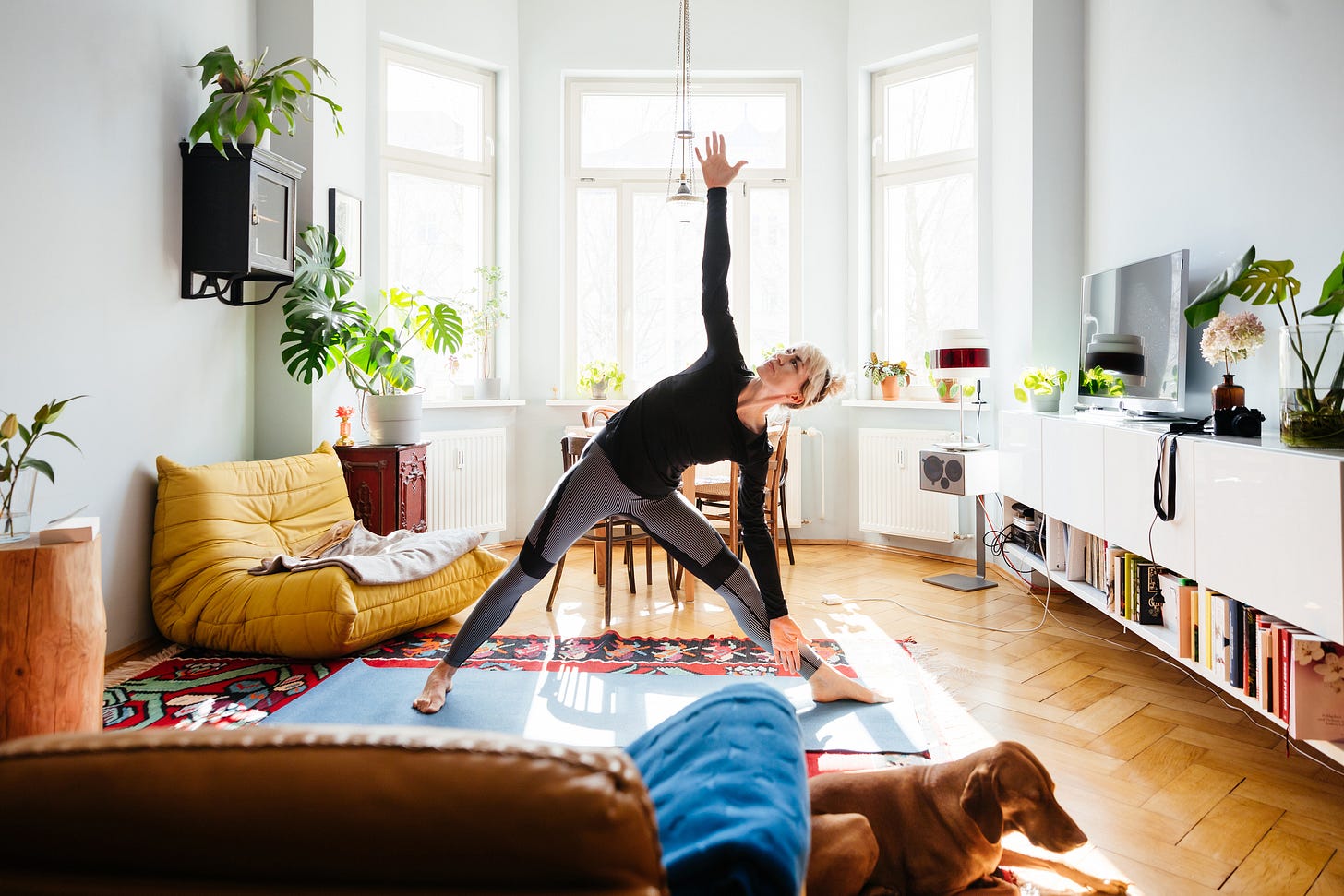Health is Wealth
This cliche always irked me, but there's no denying the truth in the sentiment.
“Well, that was my first dermatologist visit in which I was told it’s not a matter of if but when one of my moles will turn cancerous,” I said to my husband after coming home from a doctor visit.
It was a jarring experience to essentially be told cancer was almost an inevitability, but I’m incredibly proactive about my skin checks and do all I can in terms of prevention (aka applies 70 SPF and wears hats). Then, there’s just waiting for the other shoe to drop and hoping it’s caught early.
Part of why I’m sharing this is — as some readers know from Friday’s newsletter — my mother-in-law was diagnosed with colon cancer in February. A colonoscopy caught the tumor early and thankfully she’s already had a successful surgery, staged 1A, and won’t need to go through chemo.
Her outcome is the absolute best case scenario and a significant part of her result is due to being on top of preventative care and actually getting her colonoscopy in a timely manner.
(I’ve unlocked the post and you can read the full story here as well as insights on accessing preventative care if you’re under or uninsured.)
The whole situation has really gotten me thinking about the phrase “health is wealth.” It’s one that typically gets my hackles up because it can come off sounding pejorative.
Broke Millennial Workbook is available for preorder now!
Email proof of preorder to info@brokemillennial.com to unlock your bonus.
Amazon • Bookshop.org • Barnes & Nobles • Powell’s • Indie Bound • Hudson Booksellers • Books-A-Million • Your local bookstore • The library
Obviously, yes, there’s a wealth in being healthy — even from a literal perspective of it being cheaper over all. But this term so often seems to be thrown around in gyms and as weight loss inspiration, which might be why it tends to get under my skin.
Six in 10 Americans live with a chronic disease, according to the Center for Disease Control which can run the gamut from diabetes to cancer to heart disease and more. Then the language turns into the classic, “if you just eat better and exercise, all will be well” rhetoric. I’m not saying that’s wrong, but it is telling that the sentence the CDC offers about battling chronic illness is hyperlinked to “ eating well, being physically active, avoiding tobacco and excessive drinking,…” but “and getting regular health screenings” is noticeably without a linked resource.
Possibly that’s because the healthcare system in the United States is so deeply complicated and doesn’t always make it simple to be preventative. It certainly doesn’t make it easy to be reactive either. If anything, there’s a constant worry that going to the doctor for a worrisome ache or pain could end up costing you your savings. Or that you’ll get a bunch of tests run to end up totally fine and still out thousands of dollars.
If anything, it sometimes feels as if the phrase should be: Wealth is Health.
Two days ago, I called a program called MoleSafe that my doctor had recommended. In short, it’s a head-to-toe body scan coupled with really high resolution images your doctor can use to compare mole growth against. The photos tend to be better quality than those used in the dermatologist’s office and it provides a benchmark for your doctor. The cost, however, is $495 out of pocket for your first visit. That’s a really hefty sum for peace of mind and certainly cost prohibitive for many. It’s a sum I’m willing to pay, because it could be a situation like with my mother-in-law in which this investment could make a difference in a health outcome for me.
Or, it could mean I spent half the cost of Gucci loafers to be in an ill-fitting paper robe for an hour while be awkwardly photographed for nothing.
There are myriad reasons to focus on building your own financial stability, but investing in my (and Peach’s) physical and emotional health is high on my list. We’ve built a financial foundation that enables us to afford unexpected trips when loved ones need us, like to visit Peach’s mom after her diagnosis and then for him to go back after her surgery to provide care. We set aside money for unexpected medical bills (this is outside of our emergency fund), which enables me to pay for the MoleSafe program.
None of this is a solve, but when you live in a country that doesn't provide many safety nets, it is important to consider how to build your own.
Previous newsletters with healthcare information:
Amazon • Bookshop.org • Barnes & Nobles • Powell’s • Indie Bound • Hudson Booksellers • Books-A-Million • Your local bookstore • The library







“Wealth is health” is 💯. I have health insurance but there are still added costs I have to account for like high premiums. It makes me miss living overseas.